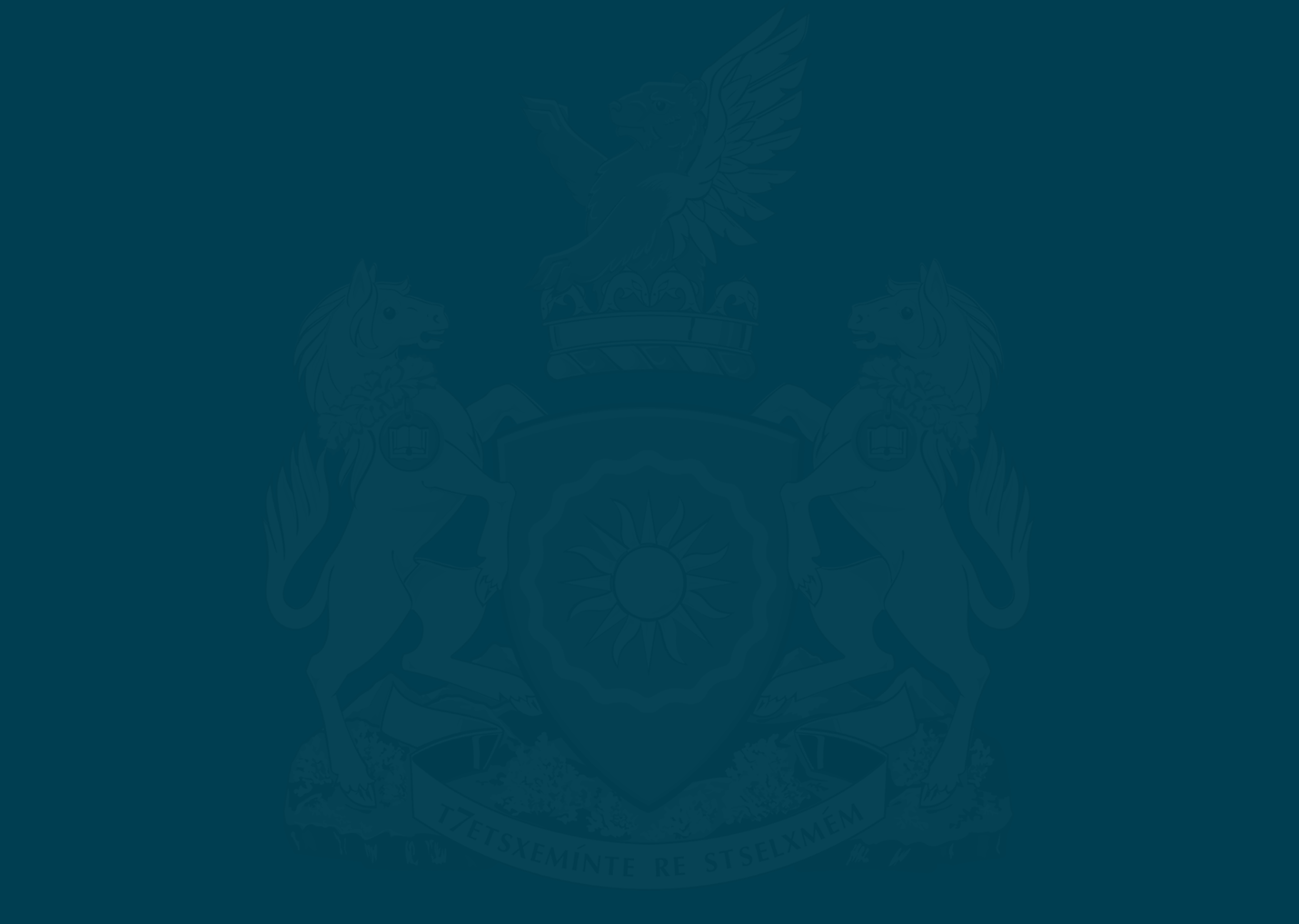
TRU 2005 Honorary Degree Recipients
THOMPSON RIVERS UNIVERSITY
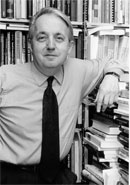
An acclaimed scholar and journalist whose career exemplifies the integration of theory and practice, Gilles Paquet has promoted new ways of teaching and of looking at the world and economics since 1960.
As a PhD student and instructor of economics and ethics at Queen's University from 1960 to 1962, he promoted teaching involving both theory and practice, and ways to mix university learning with technical training.
During the 1970s, Dr. Paquet's research in the fields of the economic history of Quebec, urban studies in Canada, and the multinational firm and the nation state, led to books which blended transdisciplinary research and applied, experiential knowledge. These highly popular books crossed the academic threshold to be widely taken up by a mainstream audience which used his ideas to frame public debate. Since then, he has regularly been in the media as an interviewer or commentator, and has been present on radio and television every week since 1978.
Throughout his career, Dr. Paquet has written or edited over 30 books and 350 papers or book chapters on nation-states, communities, markets, economies and governance, and has had a continuing role as a consulting economist for government and industry throughout his career.
He has received a number of national and international awards for his work, including the Jacques-Rousseau medal, the Esdras-Minville medal, membership in the Society of Arts, fellowship in the Royal Society for the Encouragement of Arts, Manufactures and Commerce, the Queen's Golden Jubilee medal, and the Order of Canada.
Dr. Paquet is presently President of the Royal Society of Canada, editor-in-chief of an online economics journal, and Professor Emeritus and Senior Research Fellow at the University of Ottawa.
Dr. Gilles Paquet's passion for discovery and knowledge, and his propensity to step outside traditional boundaries to examine issues and ideas, symbolizes Thompson Rivers University's commitment to research, scholarship, and public policy debate.
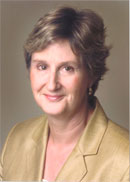
Claire Morris is a distinguished leader in the fields of government, education and social work.
After earning the gold medal for high academic achievement for her bachelor of arts degree, and national scholarships while she completed her master of social work degree, awarded by the University of Toronto in 1968, Claire Morris worked for a counseling service in Toronto for two years before taking a position with the government of New Brunswick, where she first became involved with training and development.
As a senior administrator with the government of New Brunswick, she worked in various capacities, culminating in a position as secretary to the cabinet and clerk of the executive council, where she was head of the public service and senior policy advisor to the premier and cabinet.
In 1998 she began work for the Canadian government, where she held a number of positions, mostly as a deputy minister responsible for Canada's major social policy programs, then as deputy minister of Intergovernmental Affairs.
Her international experience is extensive, with her work taking her to Washington, South Africa, New Zealand, Italy, China, Russia, and the United Kingdom. She is currently a member of the International Commission of the American Council on Education, the advisory panel of Australia Education International, and the United Nation's Organization for Economic Co-operation and Development (OECD) directing group of the Programme on Institutional Management in Higher Education.
In 2004, she left government service to assume the position of president and chief executive officer of the Association of Universities and Colleges of Canada. In that role, she is the primary strategist and spokesperson for the association and manager of the association's programs, activities, and day-to-day administration, representing the interests and promoting the initiatives of Canadian universities and higher education and research.
This honorary degree recognizes Claire Morris's significant career and professional achievements and the new opportunities she will encounter as the President of the Association of Universities and Colleges in Canada. In this manner, Claire Morris symbolizes the new challenges that our 35-year-old institution of higher education will face as Thompson Rivers University.
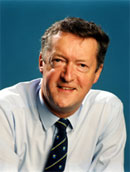
A distinguished educator and world-renowned authority in open and distance learning, Sir John Daniel is President and Chief Executive Officer of The Commonwealth of Learning.
A lifelong learner and scholar, he earned Bachelor of Arts and Master of Arts degrees in metallurgy at Oxford University, completed a doctorate in physics in 1969 at the Université de Paris, and earned a Master of Arts in educational technology degree in 1996. He is author or co-author of 232 publications, including the definitive book about the role of technology in academic communities, Mega-Universities and the Knowledge Media: Technology Strategies for Higher Education.
Inspired in 1972 by the idealism, scale, technology, and focus on students at Britain's Open University, he decided to join the distance learning revolution.
He moved back to Canada to help establish the Université du Québec's Télé-université, leaving that university in 1977 to assume the position of Vice-President, Learning Services at Athabasca University, where he remained until 1980, when he became Vice-Rector, Academic at Concordia University. In 1984, he left that post to become President of Laurentian University, a position he held until 1990, when he moved back to the United Kingdom to become Vice-Chancellor of The Open University.
He has been awarded 22 honorary doctorate degrees from universities around the world and received a number of other awards for distance education, adult learning, and innovation. He was named Officier de l'Ordre des Palmes Académiques (France) in 1991, and was knighted by Queen Elizabeth II for his services to higher education in 1994.
In 2001 Sir John was appointed Assistant Director-General for Education at the United Nations Educational, Scientific and Cultural Organization (UNESCO), a position he held until he became President and CEO of The Commonwealth of Learning in 2004.
The learning experiences and opportunities of students worldwide have been enhanced through the work and dedication of Sir John Daniel. His commitment to open and distance education symbolizes Thompson Rivers University's new role as a comprehensive university offering students both traditional and open educational paths.
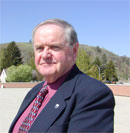
Duncan MacRae is a distinguished educator and champion of comprehensive training and education in British Columbia.
In 1965 he accepted the position of district agriculturist in Dawson Creek, implementing innovative means like an extension television program to promote agriculture issues and topics. His knowledge and presentation skills led him to a position as agriculture instructor at the BC Vocational School (later Northern Lights College) in Dawson Creek the following year, becoming vice-principal in 1969, then principal and president designate, a position he held until 1975.
In 1975, as the province's vocational schools were converted to community colleges, Duncan MacRae moved to Victoria to enter the public service. As director of the Colleges and Technical Programs Branch of the Ministry of Education, he promoted and managed the implementation of training programs at BC's regional colleges, training institutes and university colleges.
In 1996, a year before his retirement, Duncan MacRae was appointed director of the Ministry of Education's Business and Technical Programs Branch of the Post-Secondary Career Programs Branch. While there, he was instrumental in the launch of Career-Technical Centres, an innovative bridging program to allow high school students to complete entry-level training in a variety of trades and career programs, and other bridging programs leading to employment.
Throughout his career in public post-secondary education, Duncan MacRae alsoserved for 22 years in Canada's military reserve forces beginning in 1963 and culminating in the rank of Captain in the Primary Reserve and Commanding Officer of the HMCS Malahat.
He is still active in the promotion of vocational and career-technical learning opportunities, contributing his vast knowledge to the development of TRU's upcoming Bachelor of Leadership in Trades and Technology degree program, and completing a feasibility study for the implementation of a technical high school in Kamloops.
Students and employers throughout British Columbia have benefited greatly from the lifelong efforts of Duncan MacRae in the field of trades and technical training. His leadership, vision and support of trades and technical careers symbolizes Thompson Rivers University's commitment to comprehensiveness, and to increasing opportunities for education and skills training in the trades and career-technical professions.
Dr. Alex Michalos is an acclaimed citizen-scholar whose significant contributions to research in his field have helped to improve the human condition.
Now a Canadian citizen, Alex Michalos was born and raised in Cleveland, Ohio. He attended Case Western Reserve University where he earned a Bachelor of Arts degree in History, with minors in Philosophy and Religion, in 1957. He completed both a Master’s Degree in Logic and a Bachelor of Divinity degree in Comparative Religion in 1961 at the University of Chicago, and taught at the State College in St. Cloud, Minnesota, and State University of New York in Plattsburg.
After receiving his Doctorate in the Philosophy of Science from the University of Chicago in 1965, Dr. Michalos taught at the University of Guelph in Ontario and published three books by 1971. After returning to Canada in 1974 from his stay as a Scholar-in-Residence at the Swedish Institute for Social Research in Stolkholm, Dr. Michalos founded the interdisciplinary journal Social Indicators Research.
Dr. Michalos remained at Guelph until 1994, when he accepted a position at the newly established University of Northern British Columnbia. He has also served as a consultant for both government and non-governmental organizations in North America, Europe, and Africa on quality-of-life issues and social indicators.
Alex Michalos has written 17 books and edited four others, and has published 88 scholarly articles and 180 book reviews. He is editor and founder of two journals, co-editor and founder of three others, and co-editor on another. In recognition of his scholarship, he was elected as a Fellow of the Royal Society of Canada in 1993, where he served in a variety of positions, including President of Academy II, Chair of the Annual Program Committee, and the Royal Society’s representative on UNESCO.
Dr. Michalos has also been elected to a number of other key posts, including President of the International Society for Philosophy and Technology from 1983 to 1985, President of the International Society for Quality of Life Studies from 1998 to 2000, and President of the Canadian Commission for UNESCO’s Sectoral Commission on Natural, Social, and Human Sciences in 2004.
Alex Michalos has received numerous honours and awards in recognition of his considerable contributions to research and knowledge in his field. He received the 1984 Secretary of State’s Prize for in Interdisciplinary Research in Canadian Studies, and in 1996 was awarded the International Society for Quality of Life Studies Award for Extraordinary Contributions to Quality of Research.
In 2002, Dr. Michalos received the Vincentian Ethics Scholar Award from the Vincentian universities of the United States for valuable contributions to fostering business ethics research. In 2003, he was awarded the International Society for Quality of Life Studies’ Award for the Betterment of the Human Condition, and in 2004 received the Social Sciences and Humanities Research Council’s Gold Medal for Achievement in Research.
Share your congratulations and well wishes to our graduating class online!
Sign Virtual Guestbook